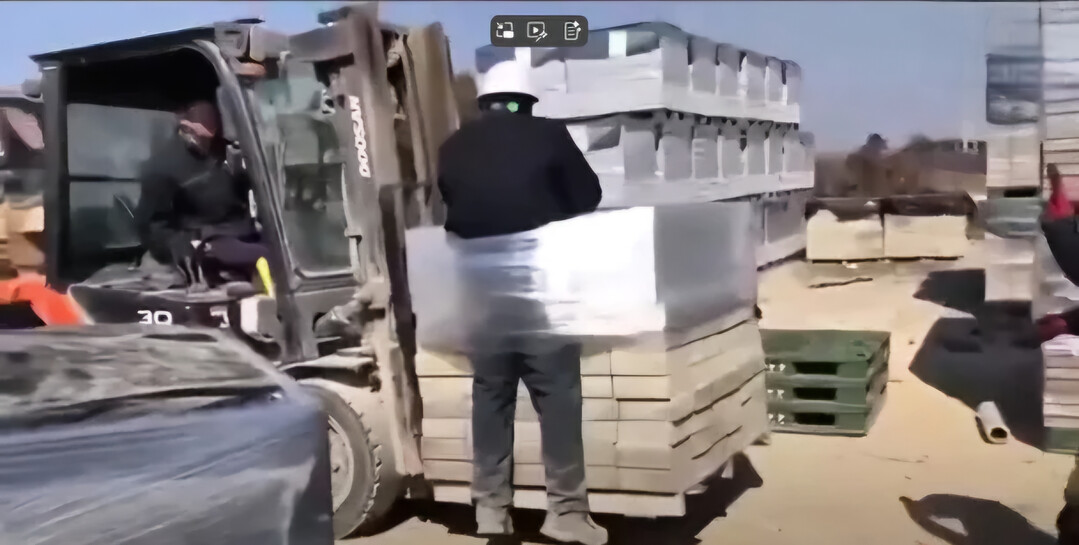
On July 24, 2025, President Lee Jae-myung expressed outrage upon seeing a shocking video. The video, which has sparked public anger, shows a Sri Lankan worker in Korea tied up in vinyl along with cargo and dragged around by a forklift. President Lee condemned this as a "barbaric human rights violation" and promised a thorough investigation and strict punishment.
On the 24th, President Lee Jae-myung shared the approximately 28-second video on his Facebook page, expressing serious concern. In the video, the Sri Lankan worker is treated like an object, tightly bound in plastic with cargo, lifted by a forklift, and moved around. More shockingly, men who appear to be colleagues are seen filming the incident with their smartphones and laughing loudly. The media outlet that posted the video revealed that the forklift operator is Korean, further amplifying the repercussions.
Immediately after watching the video, President Lee stated, "I couldn't believe my eyes," and "It's hard to believe this happened in a globally recognized cultural powerhouse and a model democracy." He continued, "This is an unacceptable act of violence against minorities and the vulnerable, and a clear human rights abuse," emphasizing that "how we treat the powerless and those in difficult circumstances shows the dignity of a society." This incident is seen as a stark example that not only reveals an individual's deviation but also the level of human rights awareness in Korean society.
Migrant Worker Human Rights Issues, A Shadow of South Korean Society
This incident involving the Sri Lankan worker has once again highlighted the severity of rampant human rights abuses against migrant workers in Korean society. According to Ministry of Justice statistics, as of December 2024, the number of foreign nationals residing in Korea is close to 2.5 million, a significant portion of whom are migrant workers employed in "3D" industries such as manufacturing and agriculture/fishing. Despite playing a crucial role in the Korean economy, they are frequently exposed to poor working conditions and human rights violations.
While the Employment Permit System provides legal employment opportunities for migrant workers, it has consistently faced criticism for making them vulnerable to human rights abuses due to difficulties in changing workplaces and the superior position of employers. Especially in rural and fishing villages, cases of verbal abuse, physical assault, and wage theft that violate basic human rights are rampant due to the closed environment and lack of oversight. Labor unions and civic organizations have been calling for institutional improvements such as freedom to change workplaces, strengthened labor inspections, and mandatory human rights education to fundamentally resolve these issues.
Government Promises "Strict Punishment for Human Rights Violations Exploiting Insecure Status"
Regarding this incident, President Lee Jae-myung promised, "The Ministry of Employment and Labor and other relevant ministries will actively respond to prevent human rights violations and labor exploitation that take advantage of insecure status." This is interpreted as a strong declaration of the government's commitment to protecting migrant workers' human rights.
President Lee reminded the public that in the past, many South Koreans also sought employment in various countries abroad and endured hardships, and that present-day Korea exists thanks to their dedication. He emphasized, "Just as Korean citizens who left their homeland for a livelihood are precious, so too must the basic human rights of migrant workers be protected."
It is expected that the government will implement practical measures to protect migrant workers' human rights in the wake of this incident. Relevant ministries will jointly strengthen investigations into workplaces employing migrant workers, impose strict penalties on perpetrators in cases of human rights violations, and expand legal and administrative support for victims. Furthermore, the government should expand counseling systems to listen to and resolve migrant workers' grievances and actively promote public campaigns to improve human rights awareness in Korean society.
It is hoped that this incident will not simply be a one-time controversy but will serve as a turning point for our society to become a mature one that respects and protects the human rights of migrant workers.
[Copyright (c) Global Economic Times. All Rights Reserved.]




























